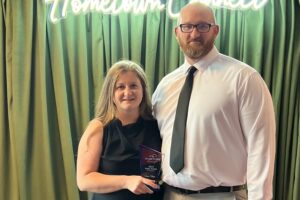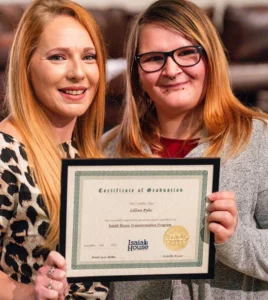We instinctively want to protect the people we love. We want to shelter them, provide for them, support them and see them succeed. But when your child, your spouse, or another loved one is in active addiction, that “help” you think you are providing them could be doing much more harm than good.
Are you enabling your loved one’s addiction rather than helping them recognize and address their problem? If so, how do you identify those enabling behaviors, and how do you fix them?
What are enabling behaviors?
To know if you are enabling, you need to know what those behaviors look like. Some enabling behaviors are easier to recognize than others, but a tip is to remember what enabling means versus what helping means. If the person could do something on their own if they were sober – such as keep a steady job to pay their rent or clean up around the house – doing it for them is enabling.
Some enabling behaviors include:
- Protecting their image with others. Making excuses for them if they don’t show up to work because they are high or hungover might stop them from getting fired, but it will not teach them a work ethic.
- Taking over their responsibilities. Cleaning their home, paying their bills, or even taking care of their children so they can go out allows them to focus more on drugs or alcohol with little concern.
- Giving them money. Even if they say they are going to use the money for groceries or to pay a bill, giving money to a person in addiction only provides incentive and supports their behavior.
- Joining in or approving. Drinking with someone who has alcohol use disorder, providing them alcohol, or supporting their behavior will only reinforce that the person doesn’t have a problem.
Not all enabling behaviors involve physically doing something for someone else. Attitude and the way you interact with that person or acknowledge their addiction can also be enabling them.
Enabling also includes:
- Denying there is a problem. Remember, admitting there is a problem is the first step for all involved. If you deny their addiction, so will they, and they may not get the help they need.
- Justifying their behavior. When you think, “they can’t help it” or “they are under a lot of stress or pressure right now” you are recognizing some underlying causes to their addiction. Yes, trauma, stress, and other experiences can influence a person’s addiction, but they still need to be addressed. Illicit drugs and alcohol are never healthy coping mechanisms and can make the problem worse.
- Avoiding confrontation. Don’t be afraid to speak up about your loved one’s behavior and actions. They may have trouble recognizing their addiction on their own or how much their actions are affecting others. You may find it difficult to express your emotions or concerns but bottling them up will hurt both you and your loved one.
- Blaming or criticizing. While it is important to acknowledge the problem and speak up about behaviors, you must be careful in how you do that. Lecturing them probably hasn’t worked before, and blaming, criticizing, or yelling at them could invoke an emotional reaction. For a person in addiction, impulse and emotional response contribute to destructive behavior.
- Prioritizing their needs. Your mental and physical health are important and if you spend too much time enduring your loved one’s actions or prioritizing their needs over yours, you will hurt yourself in the process of reinforcing their behavior.
- Blaming others. Remember, when you blame others for your loved one’s addiction you are taking away their responsibility and need to face the consequences. Yes, numerous factors contribute to someone developing substance or alcohol use disorder, but your loved one must recognize their issue to seek addiction recovery services.
What can I do instead?
As you look to stop enabling your loved one, remember to make sure they feel the consequences of their actions. Don’t clean up their messes, don’t make excuses for them, and don’t try to save face with their boss or coworkers. If they are hungover and miss work let them be reprimanded, even if it means they lose their job. If you’ve been cleaning up for them, let their dishes and laundry pile up. If they spent their paycheck on alcohol or drugs instead of paying their cell phone bill, let them lose service. If you are always there to provide a safety net, they will see no need to change their actions.
Also, consider setting boundaries with your loved one. Telling them to stop drinking or stop using probably isn’t going to do much for someone in active addiction but start with telling them they cannot visit your home or attend an event while drunk or high. Explain those boundaries and enforce them consistently.
Support their recovery
You can still help your loved one and show them you care without enabling them by encouraging and supporting recovery efforts. If they do not have a license or access to transportation, offer to drive them to an AA or NA meeting, counseling or evaluation. When they want to acknowledge their addiction, be there to listen and encourage them to enter addiction treatment.
If you have stopped enabling them but your loved one is still not recognizing their addiction and need for recovery services, there are other resources to which you can turn. Casey’s Law, for example, allows you to have your loved one court-ordered into addiction treatment. You may also find that if your loved one is confronted with legal consequences of their actions, they may have programs such as Drug Court available to them.
There are resources out there to help them, no matter their addiction. Isaiah House Treatment Center is one of them and offers faith-based addiction treatment and addiction recovery services to both men and women. Contact Isaiah House today!
Who can help me?
Addiction affects the whole family and while you may feel completely alone in what you are going through when your loved one is in addiction or recovery, you do not have to suffer in silence.
Support groups and resources are available to families impacted by alcohol and substance use disorder.
Isaiah House Treatment Center is also here to help your family address these issues together. Our team of professionals take a holistic approach to the treatment of alcohol and substance use disorder. Our programs and services are not only designed to help your loved one become sober but to also learn how to maintain that sobriety once they leave our centers. We will help them confront their addiction, take responsibility for their actions, set goals for recovery, and equip them with skills and knowledge to accomplish those goals. From fiscal responsibility to job training, legal consultations and parenting classes, Isaiah House Treatment Center will help your loved one be able to live soberly and independently.
In addition to our client care, we offer family-targeted services. Our team of professional therapists provides services for all ages for mental health issues, coping with life transitions and trauma as well as individual, family, and marriage counseling. We will work together to break the cycle of addiction and provide you and your loved ones Real HOPE!




